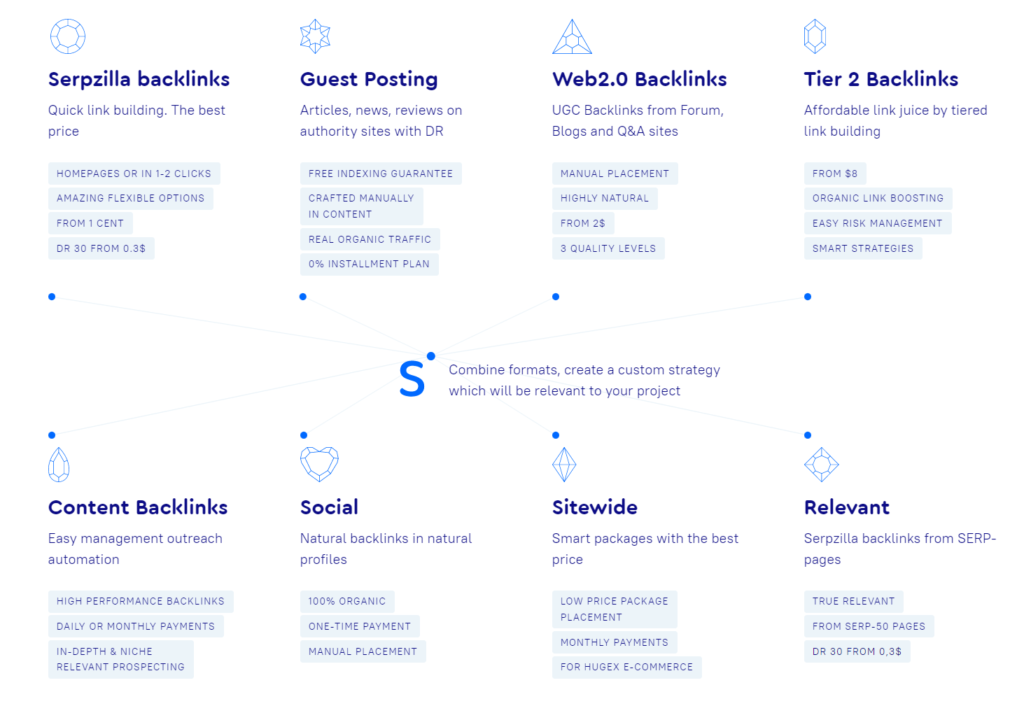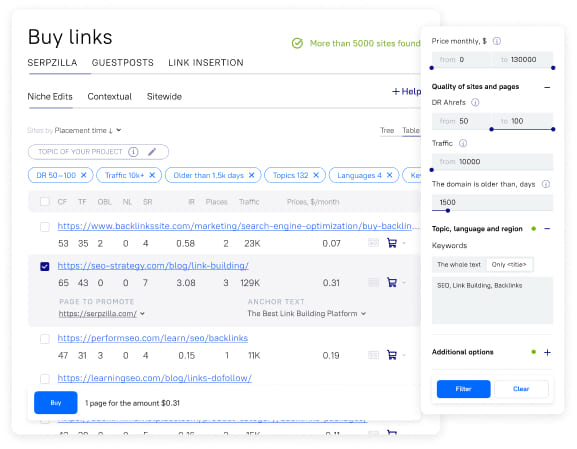Links build authority. Authority builds reputation.
It’s that simple. You could also say the same for trust – or lack of it. When a web page links to yours, it trusts that your page is an authoritative source of information for the topic it is talking about. The link is used to convey that trust.
When a highly trusted or authoritative website links to you or mentions your brand, for that matter, Google gets a positive signal about your brand, buttressed by how the linking page describes you.
And that forms the basis for online reputation management (ORM) and search engine reputation management (SERM). How? Let’s dive in.
What is ORM?
There are a few concepts that we need to differentiate before explaining how links help manage your brand reputation.
The first is ORM. Online reputation management is a set of measures that contribute to building your company’s and brand’s reputation on the internet. This includes monitoring what people say about your brand on social media or online forums, what is written about you on different online platforms, and responding to those discussions with the aim of projecting a positive and valued outlook towards your company in the minds of consumers.
Search engine reputation management is different. It’s a subset of ORM that deals exclusively with the information that search engines return about your brand or company. It involves ranking articles and URLs with positive content higher in the SERPs while pushing down negative reviews and posts as far down as possible – at least out of the first page.
Digital PR is an overlapping concept, but it is more focused on building your online reputation, creating news about your brand or product, and getting mainstream media or industry publications to talk about you, as opposed to managing your reputation. It is a useful tool for both ORM and SERM activities.
The Difference between SERM and ORM
There are some fundamental differences between SERM and ORM – in their focus, in the way they’re carried out, and in the expected and actual outcomes of these campaigns. Let’s examine a few of them for clarity’s sake:
Why are ORM and SERM Important?
Now that’s what I call a good question!
“Google is the new yellow pages, encyclopedia, newspaper and billboard!” declared Dipti Parmar, one of the SEO experts we work closely with. “Today, your brand, its identity and its reputation is built, enhanced and destroyed on Google itself.”
What’s more, study upon study has shown that 9 out of 10 buyers read online reviews before they make a purchase decision.
Organic search traffic is easily the biggest (and most profitable) source of web traffic to almost every website there is. It beats out all other sources of traffic – direct, referral, email, social, you name it! If you don’t believe me, all you have to do is take a quick peek at your Google Analytics. Go on, I’ll wait!
Back yet? According to our observations, this holds true for most sites across different verticals.


And how do you rise to the top of Google? How do you get people actually searching for your brand on Google (or other platforms)? ORM in general and SERM in particular.
How Link Building with Serpzilla Can Boost Your ORM and SERM Efforts
The primary aim of your SERM efforts should be to remove all negative mentions from the first few pages for any and all keywords that your audience could be searching for.
Here’s a quick checklist of tactics you can use to take your ORM to the next level:
- Create high-value, linkable content assets. The more valuable, shareable and linkable assets that you create, the more opportunity you will have to control the conversation around your brand. Further, you’ll have more avenues (read, online platforms) that will be willing to cite, talk about and link to this content.
- Know that the pages that you rank well for in search could be your visitors’ first interaction with your brand. I don’t need to remind you that the first impression is the last impression. While you can’t directly control the pages that appear in SERPs, you can certainly work on the content on these pages and the links that point to them. Content and links – you don’t need me to tell you – are the two pillars of all SEO efforts.
- Start pumping all kinds of links to your content assets. You never know which kind of links will work best or prove crucial to getting your favored pages to rank higher. Guest posts, social media pages, forum comments, directory listings, press releases, anything could be used to squeeze out offending or malicious URLs from the SERPs. The best part? All the links you build are totally in your control – whether you build, buy or rent them.

From experience, we’ve found that 20 to 30 Serpzilla links are often enough to get a page to the top for most keywords with unfavorable results in the SERPs.
- Directly target the platform that is ranking high on Google with negative information about your brand. If possible, get the same page modified with your messaging – or at least an official response (which should be prompt and polite).
- Use a tiered and integrated link building strategy. Guest posts on mainstream media publications and reputed sites in your industry should be at the top. Reinforce these with rented or tiered backlinks, and add web 2.0 links for good measure. When you keep building links to the main rebuttal pages over an extended time, they will stick to the top of the SERPs, constantly reinforced by trust and authority factors.
- Use content of all types – blog posts, social media or forum posts, videos, podcasts – whatever it takes to push down the offending content or review.

Over to You
Armed just with common sense and Serpzilla, you can ace your ORM efforts consistently. All it takes is a well thought-out link building strategy and a good helping of patience. Don’t forget to maintain updated social media profiles and run steady link building campaigns, so that your best customers know get the best of your messaging and never lose their trust in your brand.






